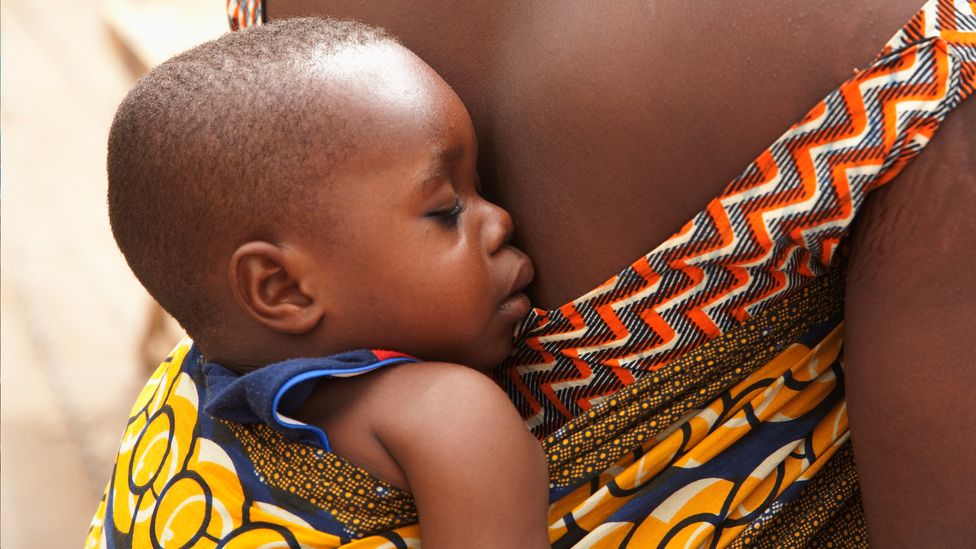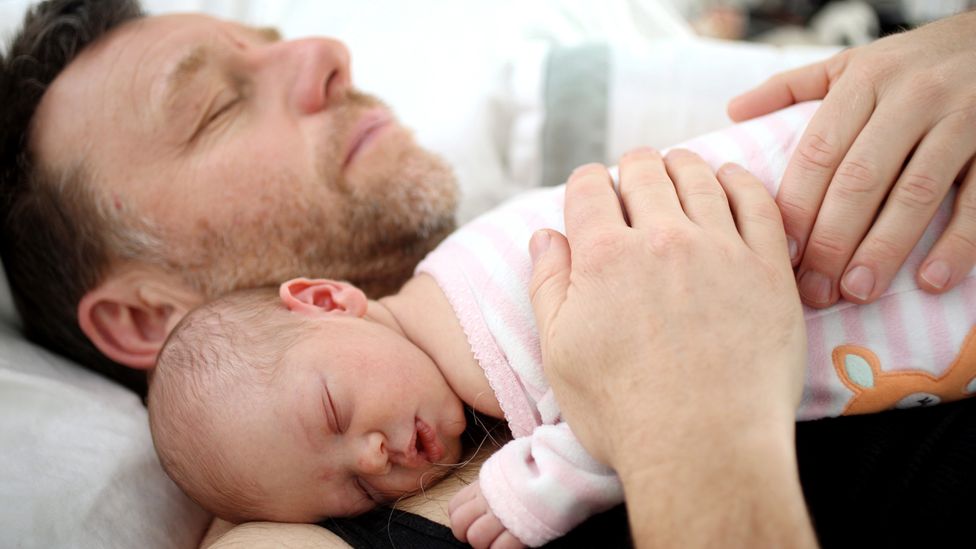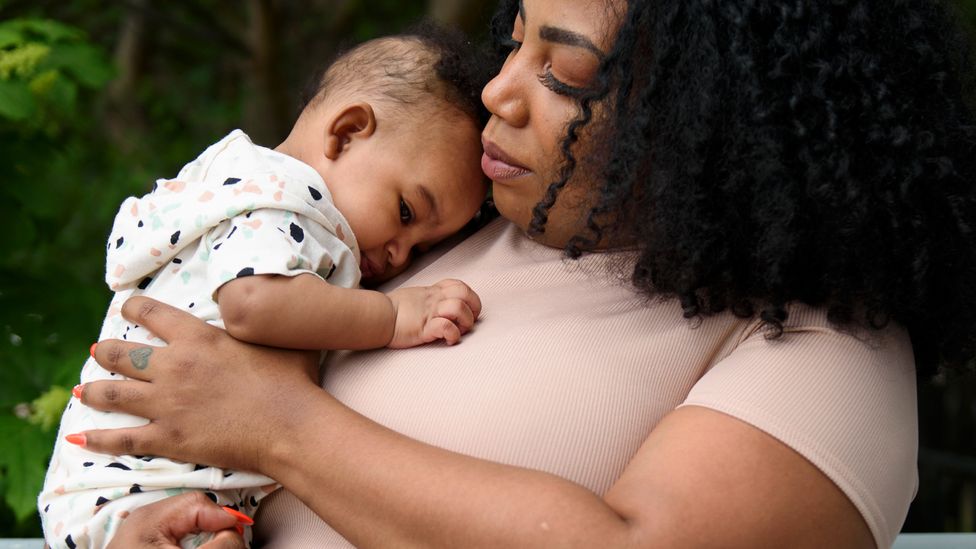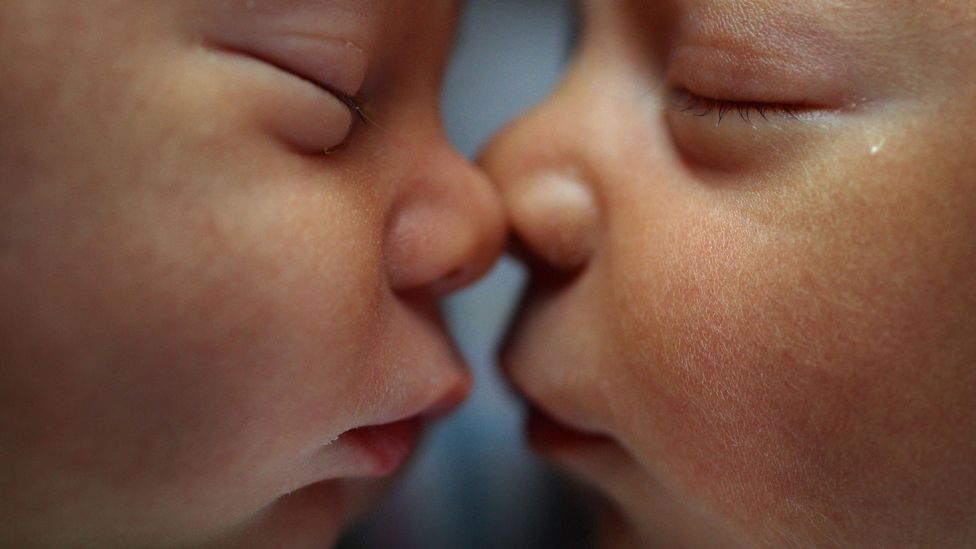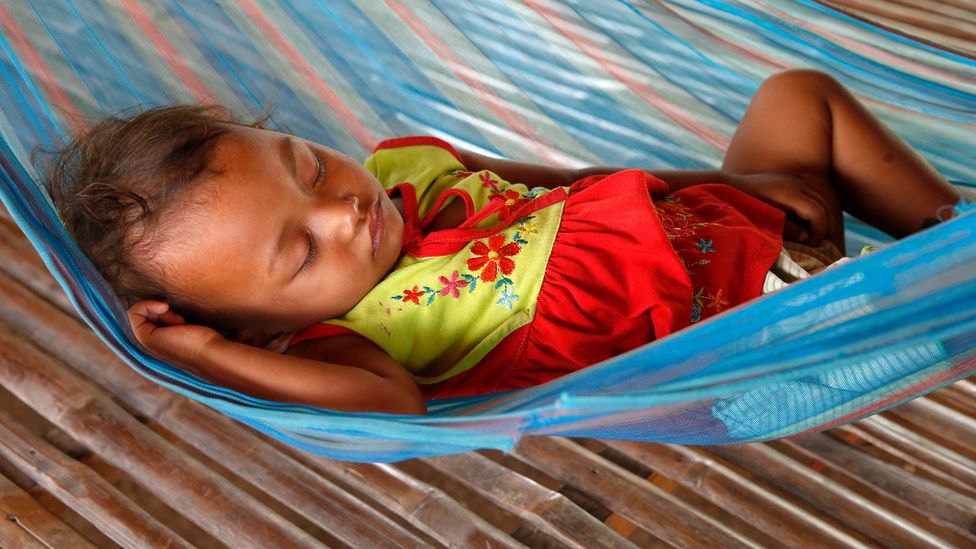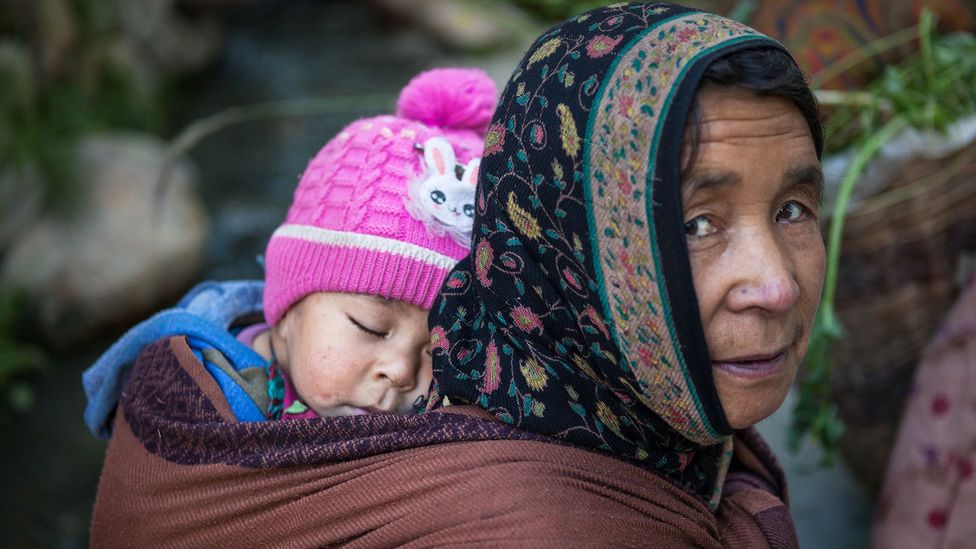This could be why in parts of the world where bedsharing is the norm, these differences don't appear: parents aren't bedsharing in reaction to a problem.
And, indeed, one of the only studies designed to account for this difference found that preschoolers who began bedsharing as young babies were more self-reliant and more socially independent not only than children who always had slept alone, but also than children who began bedsharing over the age of one, considered "reactive" bedsharing. (Information about safe bedsharing can be found here.)
Sleep problems
Despite how common it is for babies to wake or not want to sleep alone, parents often worry that their children's sleep isn't normal. Nearly 40% of the parents of eight-month-old babies in the large Finnish study, for example, said they thought their child had sleep problems.
So how do sleep researchers define a "sleep problem"?
"There's no acceptable or quantifiable strict definition," says Hiscock. "But the first step is, if parents see it as a problem, it's a problem that we need to do something about."
In some cases, that may simply mean education, Hiscock says. "If a parent says they have a three-month-old, and they're waking twice a night to feed, they're exhausted – you say well, actually, that's normal behaviour."
That realisation is key, not least of all since thinking that your baby has a problem, when they are behaving like many other babies, can exacerbate the issue – such as by increasing the stress and anxiety of (often already tired) parents. Parents who believe their child has an ongoing sleep problem are more likely to feel anger at their baby and a lack of confidence in their parenting. (It also goes the other way, with a parent's beliefs impacting how their children sleep – one study even found that a pregnant woman's belief that her infant would need help at night predicted her six-month-old waking more).
Much of what we think is a problem is also set by our cultural expectations. In one large study, Mindell found that parents' perceptions of problems differed vastly by country. Just 10.1% of parents in Vietnam thought there was a problem, compared to 75.9% in China.
"I think the whole idea about babies having sleep problems is pathologising. It suggests to parents that there's something wrong with their baby. That to me is hugely problematic, that you're causing parents to think that there's something wrong with their baby, when it's behaving like a baby," says Ball.
The origin of myth
And so, as obsessed as many parents are with infant sleep, it seems we get much of it wrong. How is that possible?
As BBC Future has covered before, much of how we see infant sleep comes down to cultural values, assumptions and ideologies, not science.
Anthropologist McKenna, a proponent of safe co-sleeping (which he has dubbed "breastsleeping"), explains that, for centuries, it was not only common but necessary for babies to sleep with their families. Without electricity or heating (or, often, any room to spare), staying close to their mothers was convenient, protective and facilitated breastfeeding. In most cultures, this remains the case.
"Prior to the 19th Century, infant sleep was not generally a concern of new parents, with popular parenting manuals of the time failing to mention anything about it," anthropologists Jennifer G Rosier and Tracy Cassels write. "When an infant woke, there was either an awake family member ready to care for the infant or a sleeping family member next to the baby who was able to quickly respond. There was also an understanding that babies (and adults) slept when they needed to sleep and that they were awake when they needed to be awake."
With the 1800s came the Industrial Revolution, a rising middle class and a new emphasis on independence. Longer working days meant more interest in unbroken sleep at night, urbanisation increased the number of new parents living away from the support of their families, and male doctors, who believed that having multiple people in the same sleep space could "poison" the air, began to replace the guidance of mothers and midwives. New books emphasised the need for rigid sleep schedules and the necessity of having infants sleep alone so that they would become independent and strong.
This has not been the case everywhere. "The Japanese think the US culture rather merciless in pushing small children toward such independence at night," one researcher noted. In Guatemala, Maya mothers responded to information about US sleeping practices with "shock, disapproval and pity".
Today, many tired parents get their information from baby sleep books or sleep coaches – who have been gaining popularity outside of the US, too. But many books aren't evidence-based, and the sleep coaching industry is unregulated. Ultimately, anyone can call themselves a sleep expert.
Meanwhile, even health care professionals often don't have background or training on baby sleep. One study found that, across 126 medical schools in the US, students received only 27 minutes of training on children's sleep. A survey of Canadian health care providers found that only 1% received any training on paediatric sleep in medical school and a study of 263 health professionals in Australia found professionals correctly answered less than half of questions about paediatric sleep. And these are countries which prioritise sleep education even more than others.
The bottom line? The single biggest, and most harmful, misconception about infant sleep may be a simple one: that there is just one correct approach to how infants should sleep.
"Different families have different requirements and preferences and take different approaches to baby sleep," says Gregory.
"This is fine as long as safety is always put at the forefront of decisions – and those looking after babies should be aware of ways in which they can help prevent SIDS."



